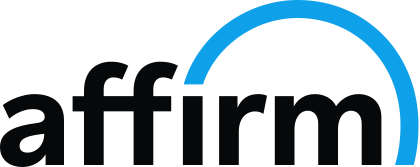 If there is one major change the pandemic made to everyday life, it is how we view the concept of work. Following the pandemic, people’s job search strategies seem to focus on more remote jobs, targeting health and happiness over bank accounts, as The Great Resignation has shown. In March 2022 alone, 4.53 million workers quit their jobs.
If there is one major change the pandemic made to everyday life, it is how we view the concept of work. Following the pandemic, people’s job search strategies seem to focus on more remote jobs, targeting health and happiness over bank accounts, as The Great Resignation has shown. In March 2022 alone, 4.53 million workers quit their jobs.
In addition to seeking more fulfilling roles (or humane treatment from employers), the pandemic has also irreversibly altered the logistics of work. Gone are the days of everyone braving one-hour commutes both ways just to sit in a cubicle for 8 hours banging away on a keyboard. It is projected that 25% of jobs in the United States will be remote by the end of 2022, as employers adjust to changing employee values and advancements in technology. And why not? Employees love working from home. Reportedly 97.6% of current remote workers wish to remain remote at some level for the rest of their careers.
So how does one’s overall strategy change when pursuing remote jobs?
Resume
An effective resume always speaks to the primary needs or needs or concerns of the decision makers. When it comes to hiring for remote jobs, employers will value the ability to work without supervision, an understanding of on-the-clock professionalism regardless of one’s location, and mastery of technology tools.
The first two are more “soft” skills. When navigating these in pursuit of remote jobs, we need to remember that everyone claims to have them. As such, it never does any good to overtly say them in the resume. (How many times can a hiring manager see “works well independently” in a resume before their eyes glaze over?)
To target remote jobs properly, soft skills should be “demonstrated” instead of “claimed.” This gets it through the back door of the employer’s mind. The idea is to prove it, not just say it. So, let’s not claim we can operate independent of oversight, let’s give examples of how we did so, along with the results of those efforts.
Interview
Chances are that if interviewing for remote jobs, the interview will be remote. So be sure to pay attention to the details that speak to remote work success. Demonstrate professionalism throughout the virtual interview process. A virtual interview can give the hiring authorities a view into how their clients or other employees will see you during work interactions.
If you are using a filter background, keep it professional. If not, set up a clean and professional looking backdrop. Take a minimalist approach and keep the visuals streamlined. Purchase a lighting source designed for video conferencing so that you always look your best to those with which you are conferencing. If you have family normally running around the house, make arrangements for them to be out of the house during the interview. Your 2-year old bursting in while you are presenting your case as an ideal candidate for remote jobs is not the best look.
From a technology standpoint, get that laptop optimized for speed and connectivity. Also, contact your internet service provider and get that speed bumped up to the maximum. You don’t want connectivity issues cropping up during the interview.
Once you’ve implemented all of these changes, conduct dry run connections with a couple of friends and colleagues to test everything – audio quality, connection consistency, background environment presentation, lighting effect on your and your clothing’s appearance, etc.
It has taken a while, but companies are starting to realize that employees do not have to be physically in the office to be productive. In fact, according to Microsoft’s Work Trend Index published in March 2021, 66% of employers worldwide are re-engineering their work environments into hybrid formats.
So, make those resume changes, set up your home office, and go get those remote jobs! 🤘🏼














